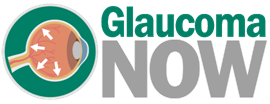Premier - Local Ophthalmologist
-
Glaucoma
Glaucoma is a group of eye conditions that damage the optic nerve, the health of which is vital for good vision. This damage is often caused by an abnormally high pressure in your eye. Glaucoma is one of the leading causes of blindness for people over the age of 60.
-
Loading the player...
Diagnosing Glaucoma <p> Ophthalmologist discusses glaucoma and how it is treated.</p>Ophthalmologist discusses glaucoma and how it is treated.
-
Diagnosing Glaucoma and Treatment Options
The academic definition of glaucoma is an insult or damage or injury to your peripheral vision associated with typical changes on your optic nerve, which is the nerve that connects your eye to the brain.
Glaucoma should be thought about as the silent blinder. Unfortunately you won’t know if you have glaucoma, without going to an eyecare professional, until it’s too late.









